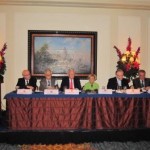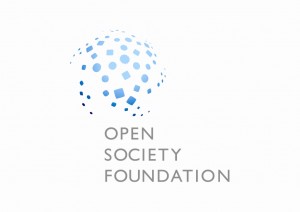 The Hellenic Foundation for European and Foreign Policy (ELIAMEP) organized, on Wednesday 2 December 2009, the presentation of the second report of the Independent Commission on Turkey entitled
The Hellenic Foundation for European and Foreign Policy (ELIAMEP) organized, on Wednesday 2 December 2009, the presentation of the second report of the Independent Commission on Turkey entitled
Turkey in Europe: breaking the vicious circle
Turkish membership to the European Union has been, and it is safe to assume that it will continue to be, a hotly debated issue by experts and policymakers. One of the most frequently discussed questions is whether Turkey’s EU membership will be an asset or an unbearable burden for the EU. The main conclusion of the Report of the Independent Commission on Turkey presented in Athens by its Chairman, Mr. Marti Ahtisaari, Former President of Finland, Nobel Peace Prize Laureate 2008, Ms. Emma Bonino, Vice President of the Senate of Italy and former European Commissioner and Mr. Albert Rohan, Former Secretary-General for Foreign Affairs of Austria, is that “Negative statements by some European leaders, efforts to substitute alternative arrangements to accession as the agreed objective and obstacles put in the way of the negotiations have all but derailed the process. In Turkey, this led to a dramatic drop in support for EU convergence from the Turkish public and reinforced the government’s lack of resolve in proceeding with Turkey’s transformation. This, in turn, fed arguments to the skeptics in European countries for whom the lack of reforms presented the proof that Turkey was unworthy of EU membership. The Independent Commission is of the view that the vicious circle must be broken in the interest of both Turkey and the EU. This will require a change of attitude by both sides.”
The Independent Commission’s members argued that nobody can predict the outcome of the accession process and whether the stated goal can be reached. To give it a fair chance, however, is a matter of the EU’s credibility, of self interest and of fairness due to all candidate countries.
Strong skepticism was expressed by the commentators, as well as the audience. It was argued that Turkey’s accession is not a realistic option because key EU member states, including France and Germany, are opposed to Turkey’s full accession, mainly because of the country’s sheer size (and the economic, demographic and political problems this might entail) and that most European countries favoured alternative arrangements: more than association, less than full membership. The discussion also revolved around fundamental questions such as the kind of Europe we want, the definition of European identity, the borders of Europe and the interaction between Islam and Europe.
Responding to some of these questions, the members of the panel differentiated between the geographic definition and the political project “Europe”, argued that there was no enthusiasm from previous enlargements and that politics, policies, public opinion are dynamic and may change rapidly, stated that at this stage there is only speculation about economic costs and no one can predict whether in ten years time there will be a Common Agricultural Policy (CAP, and asked a question of their own: “with already close relations, what else could be offered so that the alternative appears satisfactory to Turkey?”
There is little doubt that the issue of EU-Turkey relations will continue to cause heated debates among policy makers, experts and laymen alike.
Professor Thanos Veremis, University of Athens; Vice-President of ELIAMEP and Professor Panayiotis Ioakimides, University of Athens, commented on the presentations.
Professor Loukas Tsoukalis, President of ELIAMEP moderated the discussion.
See the interview of Mr. Ahtisaari.
The event was held at the Grande Bretagne Hotel.
This event was organized in cooperation with the British Council and the Open Society Foundation.



